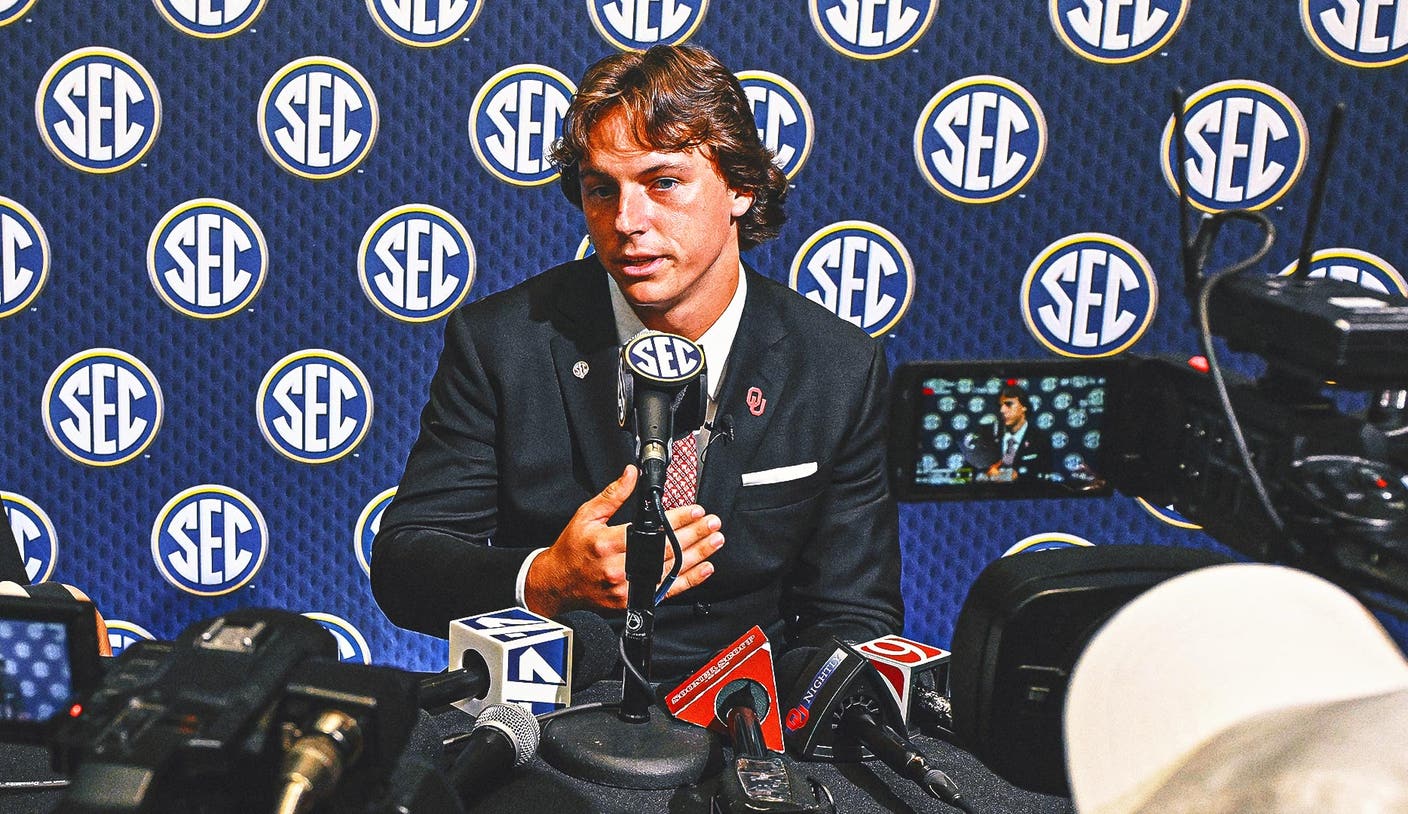Oklahoma says there's no NCAA investigation after a recent report showed QB John Mateer paying someone on Venmo for “sports gambling."
Why it matters
- Oklahoma's quick denial of an NCAA investigation reassures fans and stakeholders about the integrity of its football program.
- The controversy surrounding QB John Mateer highlights the increasing scrutiny of athlete conduct in the era of sports gambling.
- Mateer's clarification on the Venmo transaction could influence perceptions of student-athletes and their financial interactions.
In the wake of a report suggesting that Oklahoma quarterback John Mateer made a Venmo payment related to “sports gambling,” the University of Oklahoma has stated that there is no ongoing investigation by the NCAA. The revelation about Mateer’s transaction sparked concerns and queries regarding the ethical implications of student-athletes engaging in gambling activities, particularly given the rising popularity and legalization of sports betting across the country.
The university’s athletic department quickly responded to the claims, emphasizing that they had conducted an internal review and found no evidence of wrongdoing that would warrant NCAA intervention. This response aims to quell any potential panic among fans and stakeholders regarding the integrity of the football program, especially following the heightened sensitivities surrounding gambling in sports.
Mateer himself took to social media to address the situation, clarifying the nature of the Venmo payment. He explained that the transaction was meant as a lighthearted exchange with friends, referring to it as an inside joke, rather than any serious involvement in gambling. “It was just a joke between friends – nothing more,” Mateer stated, emphasizing that he has not participated in gambling activities as suggested by the report.
The incident brings to light a significant aspect of contemporary college athletics: the intersection of student-athlete behavior and the burgeoning sports gambling industry. With more states legalizing betting on sports events, universities are increasingly vigilant about their athletes’ activities, particularly when it comes to the potential for conflicts of interest or violations of NCAA rules.
As the situation unfolds, it raises questions about the policies in place regarding student-athletes and gambling, both within the NCAA and at individual universities. The NCAA has strict regulations prohibiting student-athletes from betting on sports, and violations can lead to severe penalties, including loss of eligibility. Therefore, the swift response from both the university and Mateer is critical in maintaining the program's reputation and the trust of its supporters.
This incident also reflects a broader societal shift as sports gambling becomes more mainstream. With the expansion of legal betting options, athletes are now more frequently under scrutiny, and their actions are subject to public and institutional oversight. The potential for misunderstandings, like the one involving Mateer, underscores the need for clear communication and education around the complexities of financial transactions in a digital age.
In conclusion, while the immediate concern appears to have been addressed by Oklahoma’s administration and Mateer’s clarification, the ripple effects of this incident will likely linger. The university’s commitment to maintaining integrity within its athletic programs will be closely monitored by fans, the media, and regulatory bodies moving forward. As the landscape of college sports continues to evolve alongside the expanding sports betting industry, it is imperative that both athletes and institutions navigate these waters carefully to avoid pitfalls that could jeopardize their futures.
The case serves as a reminder of the evolving challenges faced by student-athletes today and the importance of fostering an environment where transparency and integrity are paramount. As Mateer continues to focus on his role as a quarterback for the Sooners, he will undoubtedly be aware of the heightened scrutiny surrounding his actions and those of his peers in this new era of sports gambling.











